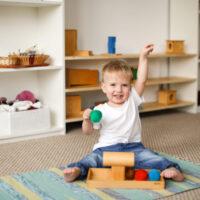Reframing Your Child’s Behavior
Reframing behavior is important because it allows us to shift our perspective and empowers us to view situations, ourselves, and others in a more positive and constructive light.
Good Beginnings That Last A Lifetime

Reframing behavior is important because it allows us to shift our perspective and empowers us to view situations, ourselves, and others in a more positive and constructive light.

Parents need to recognize that it’s okay for children to experience moments of boredom and to have unstructured time for independent play and exploration. Allowing children to engage in self-directed activities can foster creativity, independence, and problem-solving skills.

Outdoor play encourages physical activity, essential for children’s overall health. Running, jumping, climbing, and playing sports help children develop their gross motor skills, strength, coordination, and balance.

Building a healthy attachment with your child is crucial for their development and well-being. It provides a secure base from which your child can explore the world.

Nurturing yourself and your child involves practices and activities that foster physical, emotional, and mental well-being. It provides a sense of security, love, and support, which are essential for healthy emotional development.

Imperfect parenting recognizes that no parent is perfect, and all parents make mistakes or encounter challenges while raising their children. It acknowledges the human aspect of parenting, emphasizing that adults may not always have all the answers or respond to their children’s needs in an ideal way. Understanding and accepting imperfections can contribute to a healthier parent-child relationship.

Mindfulness is paying attention to what is happening in the present moment. When we teach mindfulness to children, we equip them with the skills necessary to foster self-assurance, handle stress, and navigate through uncomfortable or difficult situations.

Power struggles between children and adults are a common aspect of parent-child relationships, and they can arise for many reasons. Children go through different developmental stages, each with its own challenges.

Emotions are universal experiences that touch each of us. They play a significant role in shaping our actions and influencing our learning process. Feelings are a natural part of who we are. But how do children learn about emotions?

Positive parenting, also known as positive discipline, is an approach to raising children that focuses on fostering a strong parent-child relationship while promoting the child’s social, emotional, and cognitive development.